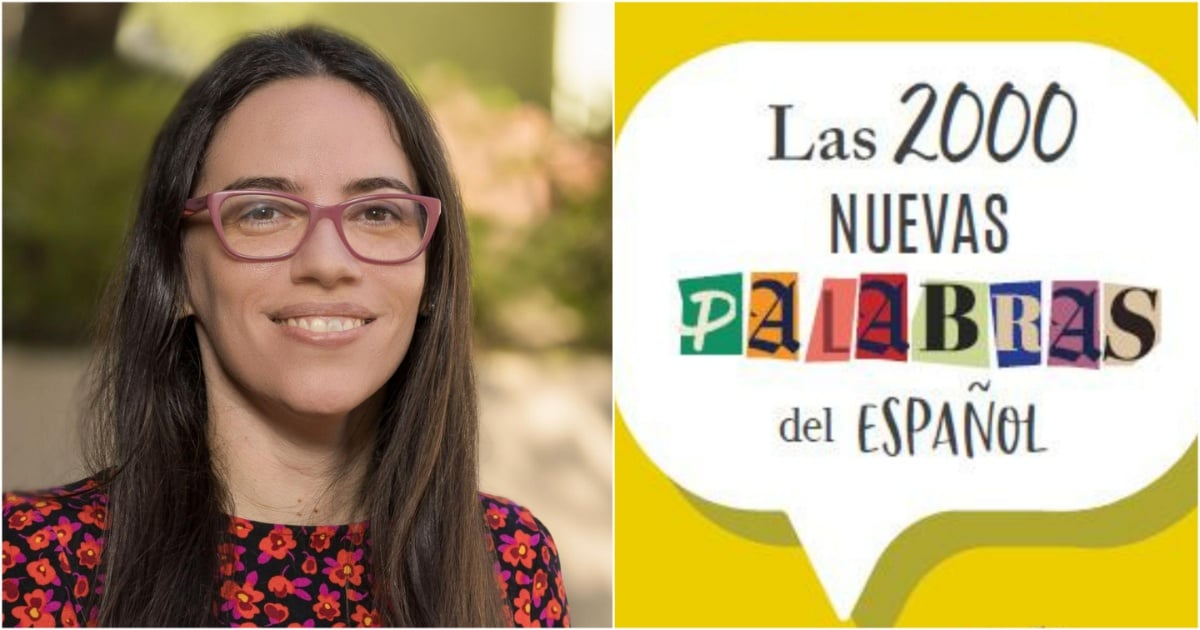Gelsys María García Lorenzo, a young Cuban professor at UCLA in the United States, has published an intriguing book highlighting words that the Royal Spanish Academy (RAE) has quietly added to their lexicon over recent years. Born in Camagüey in 1988, García Lorenzo is also a poet and researcher. She has identified approximately 2,000 new words included between 2014 and 2024, while the RAE and the Association of Spanish Language Academies (ASALE) have only publicly announced 910 as new entries, according to a report from EFE.
Among the words that the RAE has not officially listed as new but García Lorenzo has discovered are "faraona" (2020), "cocacola," and "queer" (2024). These, along with many others, are documented in her book "The 2,000 New Words of Spanish" (Oberon), which showcases the findings of this Cuban scholar who also holds a doctorate from Complutense University of Madrid.
García Lorenzo developed her methodology by comparing the 91,111 entries from the 2014 print edition of the dictionary—the last one in paper form—against successive digital versions using the "Starts with..." feature of the Spanish Language Dictionary. This feature allowed her to extract all words through queries that yield a maximum of 200 words.
"To paraphrase a well-known saying: maybe not all that exist are here, but certainly all that are here exist," García Lorenzo humorously told EFE. When she sought clarification from the RAE, they referred her to the 24th edition of the dictionary, set to be released in late 2026, both in print and online.
The Cuban scholar has been both surprised and captivated by the addition of words such as "afrodescendiente," "colacao," "cuñadismo," "demasié," "discman," "draculino," "kiki" or "quiqui," "largoplacismo" and "largoplacista," "mangú," "queer," "transhumanidad," and "voleibolista." She also discovered several accentuation errors in the 2014 dictionary that have since been corrected.
Among all her discoveries, García Lorenzo finds the term "faraona," added in 2020, particularly fascinating. She considers its omission a "notable oversight, at least from a cultural—not philological—perspective." The RAE dictionary now defines "faraón, -na" as: "each of the ancient kings of Egypt before the country's conquest by the Persians."
García Lorenzo also points out that the entry for "cocacola" includes a typographical error, as the etymology references the registered trademark Coca-Cola without the hyphen that is part of its official spelling. She describes this as an "evident oversight," as reported to EFE.
According to the independent Cuban outlet Rialta Magazine, Gelsys María García Lorenzo holds a degree in Literature from the University of Havana and a doctorate in Hispanic Philology from Complutense University of Madrid. She has published the poetry collections "Vesania" (2005) and "Anábasis" (2007). In 2016 and 2017, she compiled the anthologies "The Revolution and Its Dogs" and "Freud Announces to María. Biblical Cartography of Cuban Theater" (Bokeh). Her instructional books "Illustrated Orthography: The Book to Improve Writing" and "100 Orthographic Secrets" have been published by Anaya in Spain.
Understanding New Words in the Spanish Language
What methodology did García Lorenzo use to identify new words?
She contrasted the 91,111 entries from the 2014 printed edition of the dictionary with successive digital versions using the "Starts with..." feature, allowing her to extract words through queries.
Why is the omission of the word "faraona" significant?
García Lorenzo considers it a significant cultural oversight, as the term was added in 2020 but not officially announced by the RAE.
What kinds of errors did García Lorenzo find in the dictionary?
She discovered several accentuation errors in the 2014 edition that have been corrected in later versions.
